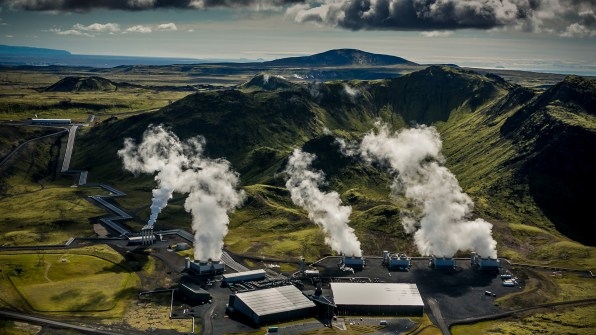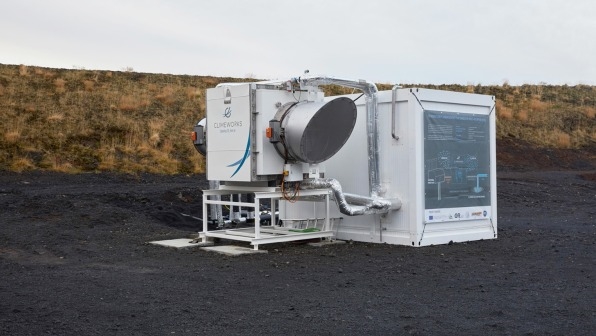Transforming the entire economy to get to net zero emissions, something that scientists say is necessary to avoid the worst impacts of climate change, will require massive and complicated transformations of nearly every aspect of society. But if you want to act on climate change now as an individual—and you’re already doing the main work of pressuring the government and companies to make systemic changes—it’s possible to subscribe to suck carbon dioxide out of the atmosphere and turn it into a rock that can be stored underground.
The subscription is available on one of several new platforms that sell the service of carbon removal. “There’s absolutely been an influx of platforms that allow people to purchase either offsets or other types of credits focused on carbon removal,” says Giana Amador, cofounder and managing director at Carbon180, a nonprofit focused on the new industry of carbon removal. “I think it’s happening because, one, there’s just an increased interest in the solutions, and two, folks are trying to harness the power of individuals to really help scale some of the solutions.”

[Photo: Arni Saeberg/Climeworks]
It’s critical to reduce emissions now, whether those emissions are coming from the world’s remaining coal power plants, the transportation system, or manufacturing. But the Intergovernmental Panel on Climate Change, the UN’s body of climate scientists, says that “negative emissions” solutions, which can remove carbon that’s already in the atmosphere, are also critical to get to safe CO2 levels. Those solutions, whether they involve replanting trees in forests or a technological solution, can also help cover some of the gap as some parts of the economy—like the airline industry—are slower to transition, says Amador. Here are three examples of new platforms that help quickly connect consumers with negative emissions.

[Photo: Zev Starr-Tambor/Climeworks]
Climeworks
At a power plant in Iceland, a direct air capture machine pulls CO2 from the ambient air outside, and the CO2 binds to the company’s filter. When the filter is heated, it’s released into the system and bound to water that can be pumped underground, where it reacts with the bedrock and is permanently stored. In an online shop, customers can pay for a monthly subscription to the service. The technology is in its infancy, and right now, it’s much more expensive to capture a ton of CO2 this way than to plant trees—but the cost will come down as it scales up, and supporting the technology now can prepare it to be more widely deployed later.
Pachama
A study from earlier this year suggests that there’s enough available land around the world to replant 1.2 trillion trees—and planting those trees could help capture a major portion of the carbon that humans have emitted since the Industrial Revolution. But it hasn’t always been easy to track that forest restoration projects are actually working the way that they claim to be. Pachama, a startup that recently participated in Y Combinator’s tech accelerator, uses satellite images, LIDAR, and deep learning algorithms to accurately track the claims of forest projects that capture carbon. In the company’s new marketplace, it’s possible to buy and sell carbon credits from those projects. (Relying on trees isn’t necessarily a permanent solution, like storing carbon underground, since a tree could burn in a wildfire and release CO2—but even shorter-term impacts still have value.)
Nori
Soil stores an enormous amount of carbon—and if farmers made changes in how they manage soil around the world through practices known as “regenerative agriculture,” it could potentially capture as much as a trillion tons of carbon from the atmosphere. The science of studying this potential use of agriculture is new, and the full potential of agriculture as a tool for negative emissions isn’t yet clear. But Nori, a startup that recently launched a new marketplace selling offsets, is working with farmers to carefully monitor how much carbon they’re capturing in soil. “Storing carbon in soils offers a once-in-a-lifetime opportunity to not only remove billions of tonnes of CO2 from the air but we can also rebuild the health and quality of our land to produce higher yields of more nutritious crops,” says Nori CEO Paul Gambill. The company is selling a limited amount of credits as it launches on a single farm, but it will be adding more farms to the platform in the coming months.
Other platforms have recently launched, including one startup that plans to plant trees using drones. “Obviously, we need a portfolio of carbon removal solutions,” says Amador. “And so it’s great that there are platforms that cover the full spectrum of the solutions.”
Fast Company , Read Full Story
(43)